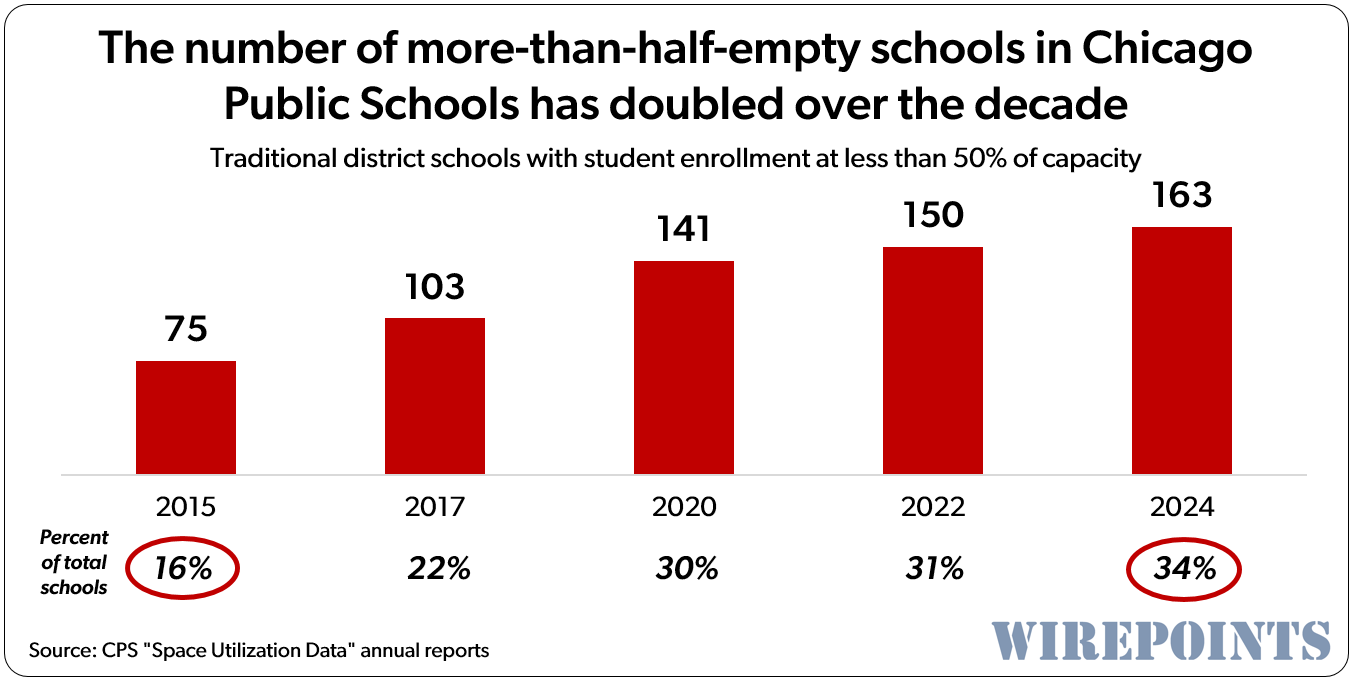By: Mark Glennon*
What could be worse than bankruptcy for an Illinois town or city?
An assetless bankruptcy. That’s when even a formal bankruptcy proceeding can’t help because there’s nothing to work with. It’s when the bank owns everything and nothing is left. That’s when it’s lights out. The concept applies regardless of whether a formal bankruptcy proceeding takes place.
But that’s just what Senate Bill 10 would make more likely. It’s one of the twelve bills comprising the “grand bargain” now under consideration in Springfield. It would assure that bondholders — who you can think of as “the bank” — get permanent ownership of the lifeblood Illinois municipalities need to provide government services.
Here’s the background: Money flowing from state government to Illinois towns and cities is essential for those municipalities to function. That money includes the municipalities’ share of the sales and income tax, school aid and other funding for expenses shared with the state. That money is usually mortgaged to secure payment to bondholders. However, many of those mortgages probably could be undone if Springfield and our municipalities ever got serious about ending our fiscal crisis.
They should already be working together to do that — to recharacterize or change the way tax revenue and expenses are shared, or just not appropriate the particular funds covered by the mortgage, which would free those monies from the mortgages. That task would be especially easy, at least in some cases, if the state authorized our municipalities to file for bankruptcy under Chapter 9 of the Federal Bankruptcy Code.
The municipal bond community knows all that, though most of our politician’s don’t. Senate Bill 10 is intended to eliminate the risk of mortgages being undone and assure that bondholders come first, hell or high water, regardless of the need for essential government service. It would do that by forcing (not just authorizing) municipalities that want to use state money as collateral to transfer complete ownership of money flowing from state government to a new, separate entity created solely to pay bondholders. By doing that, the bill would create a form of mortgage that would be bulletproof even in bankruptcy. The bill would apply to all home rule muncipalities (which are all towns and cities with more than 25,000 residents plus those that have voted to become home rule).
It gets worse. Section 8-13-15 of the bill binds the state itself to “non-impairment.” That means the state would be required by statue to refrain from doing the very things it should already be doing — working to undo mortgages that prioritize bondholders over the public. And Section 8-13-20 of the bill prohibits municipalities from mortgaging their state money in any way other than the bulletproof manner created by the bill.
When I practiced law I taught secured lending and bankruptcy as an adjunct at the University of Texas Law School. I can imagine giving an assignment like this: “Draft a bill to make bondholders supreme by stiffing the public and taxpayers.” If somebody handed in Senate Bill 10, they’d get an A+.
The rationale for the bill is that it will help municipalities by lowering their borrowing costs. Interest rates are lower if bonds are more solidly secured.
That’s certainly true. The problem, however, is that other consequences of the bill outweigh that benefit. You could probably get a lower rate on your home mortgage, too, if you transferred full ownership interest of your most essential assets, including future income, to your mortgage lender.
More importantly, Senate Bill 10 will just encourage more borrowing. I’ve talked to two people who know the municipal finance business from the inside, though they won’t talk on the record. Both laughed off the bill for what it really is — just another way to get municipalities to borrow more, which means more business for their industry. Is that really what we need?
Who is representing the public on this — service recipients and taxpayers? Nobody, that’s who. I doubt there are even ten members of the General Assembly who understand these things. I got hold of the House Republican Staff analysis of the bill. Unbelievably, it mentions none of the issues raised above. In fact, it says the rationale for the bill is helping municipalities by smoothing out what has become an irregular flow of their money from Springfield. Huh? That’s not what people in the muni bond industry say is the purpose of the bill and it’s hard to see how the bill smooths out revenue flows.
The bill is sponsored by Senate President John Cullerton (D-Chicago). I trust you know what that means about the public interest being served. It was negotiated on the other side by Senate Minority Leader Christine Radogno (R-Lemont). Sorry, but she’s just not up to the job, as I argued recently.
Nor has the press figured out any of this. The single exception is an article in The Bond Buyer by Yvette Shields (reprinted by Fidelity Investments and linked here). It’s excellent, but it’s technical and written for the municipal bond industry, so you cannot expect a critical analysis of the bill from a taxpayer’s perspective. It contains quotes from some of the usual sources who comment on municipal bonds. That’s a serious part of the bigger problem about municipal finance reporting: Most experts are in the business and biased towards it.
Finally, you should fairly ask whether talk that pits bondholders against taxpayers, as I’m engaging in here, is harmful. Won’t it scare off future bond buyers and push up borrowing costs?
First, the municipal bond industry is already thinking in those terms. That’s why they want Senate Bill 10. That’s why they’re already taking dibs on public bones in a number of other ways, as I recently wrote. The bond folks are running laps around the public interest. They know we are heading into the tank.
Second, the risk is routine in the insolvency world. There’s just no way to avoid it entirely, but it can be mitigated by acting quickly and decisively. Illinois and its muncipalities are doing the opposite by relying on the solution that got us here — borrowing and mortgaging more and more. The risk can also be mitigated by carefully limiting further borrowing. That’s why anything like Senate Bill 10 should be considered only if paired with stricter borrowing caps that would prevent the risk of an assetless bankruptcy from ever arising. Current borrowing caps aren’t working, but that’s a subject for another day.
UPDATE 2/28/17: An important point to clarify is that the bill applies irrespective of whether there is a bankruptcy, as do my comments on it. I’ve added some language on that. If a muncipality sinks into deep insolvency and begins failing to pay its bill, and there is no formal bankruptcy, the bill would work the same way. It would allow bondholders to exercise their rights against state cash to the exclusion of all other creditors and uses.
FURTHER UPDATE 2/28/17: The bill was held over today in light of opposition which, I am told, included one senator waiving a copy of this article and raising the issues described herein. Cullerton will try again, perhaps tomorrow.
*Mark Glennon is founder of Wirepoints. Opinions expressed are his own.


 A set of state lawmakers want to extend CPS’ current school closing moratorium to February 1, 2027 – the same year CPS is set to transition to a fully-elected school board. That means schools like Manley High School, with capacity for more than 1,000 students but enrollment of just 78, can’t be closed for anther three years. The school spends $45,000 per student, but just 2.4% of students read at grade level.
A set of state lawmakers want to extend CPS’ current school closing moratorium to February 1, 2027 – the same year CPS is set to transition to a fully-elected school board. That means schools like Manley High School, with capacity for more than 1,000 students but enrollment of just 78, can’t be closed for anther three years. The school spends $45,000 per student, but just 2.4% of students read at grade level. Hopefully, all media will get the message, in Illinois, too.
Hopefully, all media will get the message, in Illinois, too. Ted joined Tom Miller of WJPF to talk about Illinois’ highest-in-the-nation property taxes, why lawmakers don’t want to touch the tax’s cost drivers, just how much Illinoisans’ tax burden has grown over the decades, why Gov. Pritzker failed to meet his promise to reform property taxes, and more.
Ted joined Tom Miller of WJPF to talk about Illinois’ highest-in-the-nation property taxes, why lawmakers don’t want to touch the tax’s cost drivers, just how much Illinoisans’ tax burden has grown over the decades, why Gov. Pritzker failed to meet his promise to reform property taxes, and more.
Is this the consequence of the Detroit and California bankruptcies screwing the bondholders in favor of unions and public pensions? Looks like they don’t trust any BK judge whatsoever re: Illinois entities. I don’t blame the bondholders, Illinois corrupt Democrat Machine is to blame. Would you lend any money to Illinois without such clauses?
My biggest question then is, in a BK event, would Illinois or cities be forced to raise taxes astronomically to keep pensions retiree health care whole or does the pensions just become unsecured general creditors for the unfunded portions?
Doug, the unfunded pension and healthcare liabilities become generally unsecured debt. Theoretically it gets treated equally with other unsecured creditors, though in practice pensioners have been able to negotiate a better deal. The court can’t directly order tax increase, but the question of whether a municipality has exhausted that route is part of the proceeding from the start. In the initial “eligibility” hearing, the whole case gets thrown out if the judge thinks they could just raise taxes.
The taxpayers are becoming a commodity to be traded, it’s kind of like a slave trade in a way? Now we have a constitutional clause that protects one classes pensions from market, or any form of decline, over another workers classes 401k with no similar protection. And we have a law that protects lenders as the “owners” of the taxpayers labor that generates the states cash flow. Thirdly we have to contend with a rigged bond rating system that rewards a borrower, the state, with better ratings for the more ways they can come up with to tax residents. Everyone… Read more »
So if this passed, which it better not or we will lose more intelligent taxpayers, who would receive their money first in the event of an insolvency, bondholders or pensioners.
Bondholders would get paid first as long as the value of their collateral covered their debt. Pensioners get paid the funded portion of their pensions. Bond debt that’s not covered by collateral and the unfunded liability on pensions then all get cut pro rata, along with any other general unsecured debt. That’s the written bankruptcy law. In practice, pensioners have usually been able to negotiate a somewhat better deal than bondholders, as was the case in Detroit.
If the bill becomes law and one of these mortgage things was created for a given municipal bond issue, would money literally flow from the state, to a middleman, to the municipality?
Or would that exist on paper only?
It would flow through that newly created middleman — a bankruptcy-remote entity, as they call it. That wouldn’t mean much because it would be a simple pass-through. However, upon various events of default that would be specified, the money might then flow directly to the bond trustee or payment agent (who distributes it to the bondholders). Either way, it is mostly paperwork as long as the courts enforce it. There is some question, however, whether courts would enforce it, especially if basic government services started to fail. See https://fixedincome.fidelity.com/ftgw/fi/FINewsArticle?id=201702171901SM______BNDBUYER_0001125635_110.1
Appalling! No wonder the legislators have been reluctant to disclose exactly what’s in this “grand bargain”!
Appalling! No wonder the legislators have been reluctant to disclose publicly what’s in this “grand bargain”!
Just as an FYI — people need to look at what happened in Rhode Island. They did a bondholder protection bill in 2011. Should look at what has happened since then.
See here:
http://blogs.reuters.com/muniland/2011/08/03/bondholders-have-pushed-ahead-of-others-in-line/
Meep, excellent point. That’s a great article to read for anybody with a serious interest in this topic. By the way, the muni bond industry is pushing for exactly that kind of priority for itself described in that article, in addition to Senate Bill 10.
Bond holders are taking risk, especially investing in high yield low grade investments. They may be told there is no risk yet there most certainly is. Bills like upset the apple cart in a very damaging way. Bondholders should be the first to suffer a hair cut.
Outstanding article